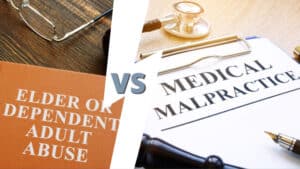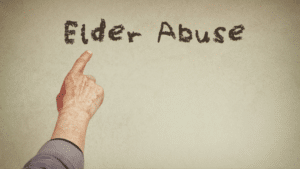
Today’s question comes from Barbara M. in Marin who asks, “My father was in a skilled nursing facility for the elderly in Marin County. He was 82, had trouble walking, and was basically confined to his bed or a wheel chair (the chair was not used frequently). Dad had some dementia and had bowel and bladder problems so he was also in an adult undergarment. There were times I would come in and find him in bed, soaked in urine and/or feces. The nurses said that they were understaffed and they were doing their best. Dad developed severe ulcers on his bottom that became infected and he died. I feel so bad and angry that they treated him this way. What can I do about it?”
Barbara, this is a too frequent occurrence these days: understaffed nursing facilities. As a result patients are often left neglected and uncared for. It is a shame that our elders are treated this way. It is the same old story: squeeze as much profit as possible from the business by cutting corners.
Editor’s Note: A full listing of the types of abuse and neglect that seniors may experience at care homes, and to contact an experience elder abuse attorney at our law firm, visit our elder care injury lawsuit page. We also have a free booklet summarizing California law protecting seniors from abuse and the rights of seniors in care facilities.
When a person’s death is caused by the wrongful act or neglect of another the law provides that certain individuals with a relationship to the deceased can bring a cause of action for the losses they have personally suffered as a result of the decedent’s death. (Cal. Code Civ. Proc. § 377.60.) One or more of the following may have a right to initiate an action; 1) The surviving spouse, if the person was married at the time of death; 2) A surviving domestic partner, which means, “a person who, at the time of the decedent’s death, was the domestic partner of the decedent in a registered domestic partnership”; 3) Any children of the deceased; 4) If there are no surviving children, even if there is or is not a spouse or domestic partner, then any person(s) who would be entitled to the property of the deceased, as if he or she did not have a will (intestate succession); 5) If at the time of death, there were individuals dependent on the deceased including a putative spouse, the children of the putative spouse, stepchildren or parents of the deceased.
A “putative spouse” means the surviving spouse of a void or voidable marriage who is found by the court to have believed in good faith that the marriage to the decedent was valid; or 6) A minor, if that minor had resided with the person for 180 days in the person’s home and was dependent on the person for at least half of his/her support.
Once standing is established (the right as per above), a plaintiff must show that the decedent’s death was proximately caused by the wrongful acts of the defendant(s). “The elements of the cause of action for wrongful death are: 1) the establishment of a duty; 2) a breach of that duty; 3) the breach causing the death; and 4) damages sustained as a result of the death. Damages are provided not for grief or emotional distress but for the loss of the relationship. Therefore those with closer ties generally obtain higher compensation.
In the case of the elderly or dependent, in addition to a wrongful death action, a claim for elder abuse or neglect can be brought. The Elder and Dependent Adult Civil Protection Act (“EADACPA”), codified at Welfare and Institutions Code 15600 et seq., reflects the Legislature’s recognition that persons age 65 and older are members of a disadvantaged class worthy of heightened protection. Through its passage, the Legislature recognized that it is an important state responsibility to protect elders from abuse and neglect. EADACPA helps to meet that goal. EADACPA affords heightened remedies to encourage private enforcement of the laws, including no cap for a victim’s pain and suffering, attorney’s fees and costs, and punitive damages. These remedies are greater than those allowed under the wrongful death statutes.
Abuse of an elder means either (A) physical abuse, neglect, financial abuse, abandonment, isolation, abduction, or other treatment resulting in physical harm or pain or mental suffering or (B) deprivation by a care custodian of goods and services necessary to avoid physical harm or mental suffering. Abuse of an elder means “[t]he negligent failure of any person having the care or custody of an elder or a dependent adult to exercise that degree of care that a reasonable person in a like position would exercise.”
When elder abuse by neglect is alleged, as in the instant matter, the statutory definition of “neglect” speaks of the failure to provide medical care and/or take steps to provide safety measures. Under staffing frequently leads to neglect which is actionable under the statute. When the conduct is egregious enhanced remedies, such as punitive damages and/or attorney’s fees are available.
From what you say it appears that your family has a cause of action for wrongful death and elder abuse. We have handled many of these cases and I have authored a 30 page booklet “Stop Elder Abuse” which I give away to anyone free of charge. Just email us and we will get you a copy.
Christopher B. Dolan is owner of the Dolan Law Firm. Email him questions to address in his weekly column in the San Francisco Examiner to help@dolanlawfirm.com









